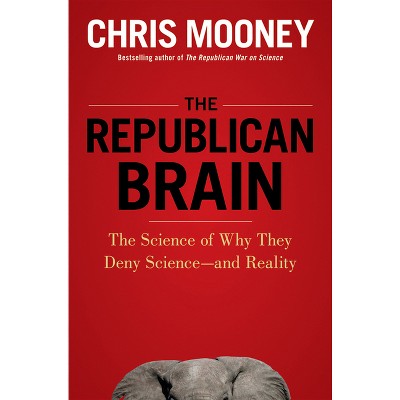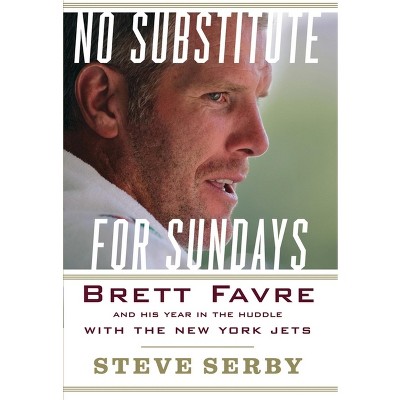Sponsored

Being Right Is Not Enough - by Paul Waldman (Hardcover)
In Stock
Sponsored
About this item
Highlights
- "Waldman's book is terrific-good sense mustered with evidence, well argued, and sharply written to boot.
- About the Author: PAUL WALDMAN is a Senior Fellow at Media Matters for America, and a founder of gadflyer.com.
- 274 Pages
- Political Science, Political Ideologies
Description
Book Synopsis
"Waldman's book is terrific-good sense mustered with evidence, well argued, and sharply written to boot. I agree fervently with almost everything he writes. This is the indispensable book for the 2006 elections."--Todd Gitlin, author of The Sixties and The Twilight of Common Dreams
"A well-sourced, partisan blueprint for undoing Republican control of the nation."
--Publishers Weekly
"Here's the ticket for Democrats to get back in power: read this book, understand what it means to be a true American progressive, expose conservatives as the mean elitists they are, get tough, and fight back. Nobody paints the strengths of progressives and the weaknesses of conservatives like Paul Waldman."
--Bill Press, author How the Republicans Stole Christmas
"With clarity and passion, Paul Waldman demonstrates persuasively that the forces of the right have not 'taken over the country, ' as the media often lazily put it. They've only taken over politics. That can be reversed, and Waldman shows exactly how."
--Michael Tomasky, Editor, the American Prospect
From the Back Cover
"Waldman's book is terrific-good sense mustered with evidence, well argued, and sharply written to boot. I agree fervently with almost everything he writes. This is the indispensable book for the 2006 elections."--Todd Gitlin, author of "The Sixties and The Twilight of Common Dreams"
"A well-sourced, partisan blueprint for undoing Republican control of the nation."
--"Publishers Weekly"
"Here's the ticket for Democrats to get back in power: read this book, understand what it means to be a true American progressive, expose conservatives as the mean elitists they are, get tough, and fight back. Nobody paints the strengths of progressives and the weaknesses of conservatives like Paul Waldman."
--Bill Press, author "How the Republicans Stole Christmas"
"With clarity and passion, Paul Waldman demonstrates persuasively that the forces of the right have not 'taken over the country, ' as the media often lazily put it. They've only taken over politics. That can be reversed, and Waldman shows exactly how."
--Michael Tomasky, Editor, the "American Prospect"
Review Quotes
A senior fellow at Media Matters for America and the former associate director of the Annenberg Public Policy Center, Waldman briefly indulges in matter-of-fact self-blame while lauding the Right for its hard work and cheering on future Democratic activism in this well-sourced, partisan blueprint for undoing Republican control of the nation. Let's "inaugurate the age of the progressive warrior," Waldman ("Fraud: The Strategy Behind the Bush Lies and Why the Media Didn't Tell You") trumpets, proposing that Democrats take a cue from their opponents in order to do so. He maps out a rhetorical strategy, a "thematically unified master narrative" in answer to the "four pillars of conservatism" low taxes, small government, strong defense and traditional social values. "We're all in it together" is Waldman's progressive answer, a maxim that encompasses five principles: "government that works for everyone, opportunity for everyone, security for everyone, individual freedom for everyone, progress for everyone." Under each principle one can fit any topical issue (e.g., corporate accountability), Waldman explains. He details more grounded, if less conventional, strategies as well: attract moderate voters to the Democratic Party by attacking moderate Republican politicians instead of radical conservatives, and focus on the Southwest instead of the South. Daunted progressives may take heart in Waldman's pragmatic if untested ideas. "(May)" ("Publishers Weekly", February 13, 2006)
About the Author
PAUL WALDMAN is a Senior Fellow at Media Matters for America, and a founder of gadflyer.com. His writing has also been featured in the "American Prospect," "The Washington Post," "The Washington Monthly," and "Salon.com," as well as many scholarly journals.










